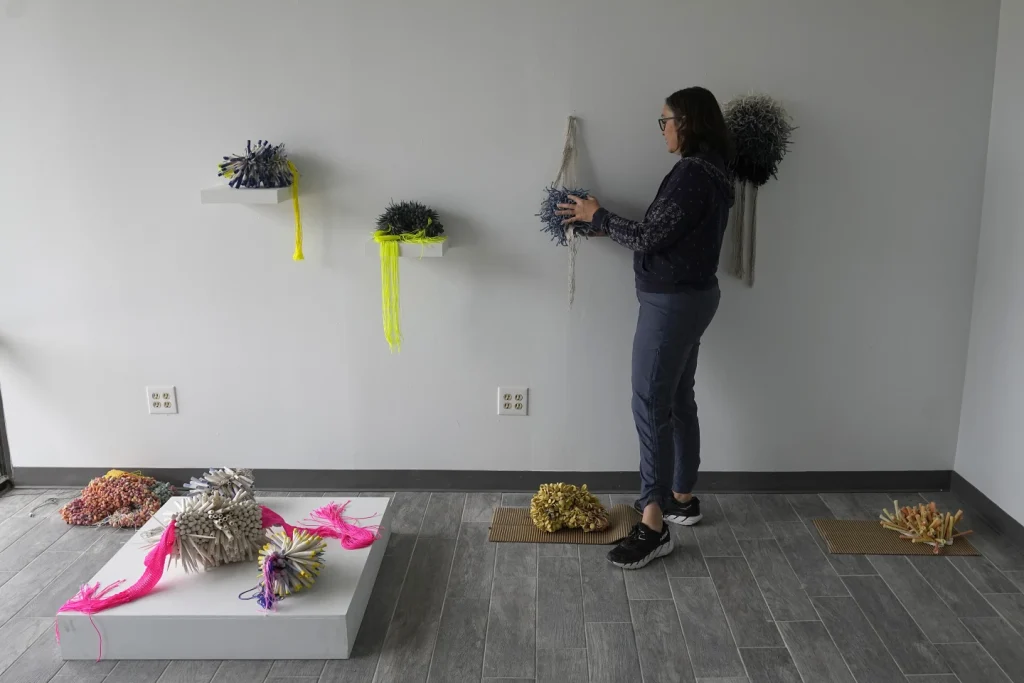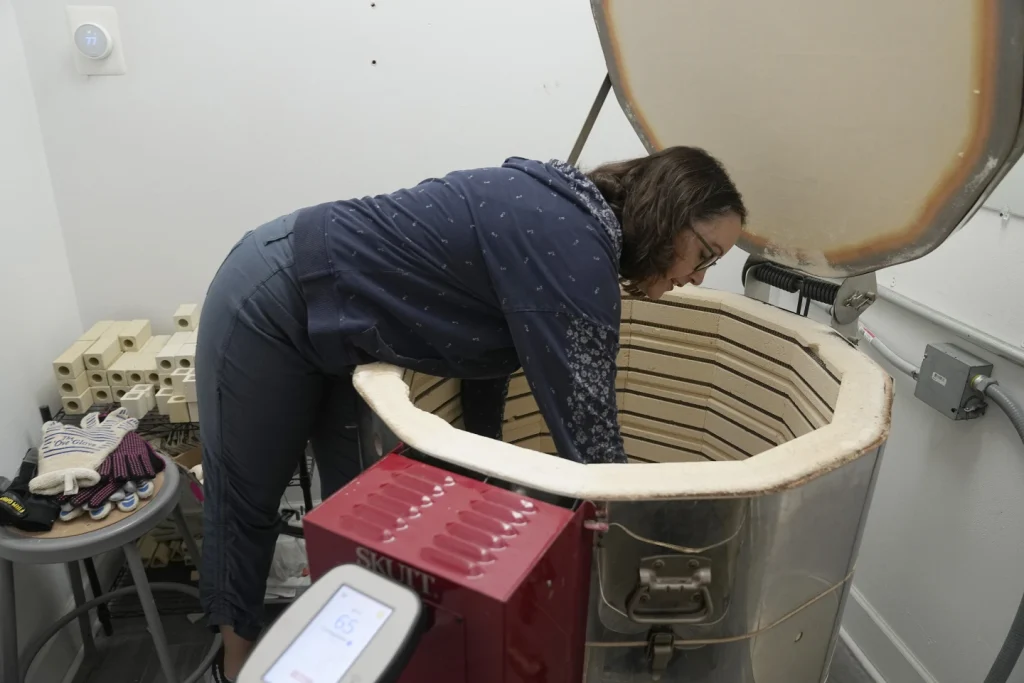In the current economic climate, small businesses are encountering numerous obstacles as they strive to expand and thrive. Chief among these challenges is the difficulty of obtaining a loan.
Both large and small banks have implemented more stringent lending criteria in response to the Federal Reserve’s recent interest rate increases.
Furthermore, the recent collapse of three regional banks and the potential for more stringent regulations have likely contributed to an atmosphere of increased caution among lending institutions.
As a result, small businesses are finding it increasingly challenging to secure the funding they need to sustain and grow their operations. This trend is particularly concerning given the vital role that small businesses play in driving economic growth and job creation.
As such, finding solutions to this issue is of paramount importance for the continued prosperity of small businesses and the broader economy.

In today’s economic climate, business owners are facing unprecedented challenges when it comes to securing funding for their ventures. With traditional lenders tightening their requirements and becoming more risk-averse, many entrepreneurs are turning to alternative sources of financing.
Crowdsourcing has emerged as a popular option, allowing business owners to tap into a larger pool of potential investors and supporters. However, this shift towards crowdsourcing often means relinquishing some control and autonomy over the business, as well as potentially diluting ownership stakes.
In some cases, business owners are forced to turn to their family or friends for financial assistance, which can strain personal relationships and create additional pressure and stress.
In the face of these obstacles, some entrepreneurs are left with no choice but to forgo their expansion plans, which would have otherwise been funded by additional capital.
This not only hinders their growth potential but also has ripple effects on the overall economy, as it limits job creation and innovation.
As business owners continue to navigate these challenges, it is crucial for policymakers and financial institutions to reevaluate their approach and provide more support and flexibility to small and medium-sized enterprises.
The recent data from the Federal Reserve and Biz2Credit paints a concerning picture for small businesses seeking loans.
It is evident that there has been a significant tightening of lending standards for small firms, with almost half of banks reporting that they have tightened their lending standards.
This is a substantial increase from the previous year, indicating a trend towards stricter lending practices.
The reasons cited for this tightening of lending standards are mainly related to the uncertain economic outlook. With the ongoing global pandemic and its economic repercussions, banks are becoming more cautious in their lending practices.
This is understandable, as they seek to mitigate the risks associated with lending to small businesses during such uncertain times.
The data from Biz2Credit further supports this narrative, showing a decline in the approval rates for small business loan applications. Big banks, in particular, have seen a steady decrease in approval rates, with only 13% of applications being approved in October.
Similarly, smaller banks have also experienced a decline in approval rates, with only one in five funding requests being approved. This is a far cry from the 50% approval rate that was observed before the pandemic, highlighting the significant impact that the current economic climate has had on lending practices.
In addition to the tightening of lending standards, small businesses are also facing higher interest rates on loans. The average interest rate paid on short term loans has seen a sharp increase, rising to 9.1% in October from 6.7% in the same period a year ago.
This represents a significant burden for small businesses, as higher interest rates can make borrowing more expensive and potentially unaffordable for many.
Collectively, these factors have created a challenging environment for small businesses seeking loans. The combination of tightened lending standards, declining approval rates, and higher interest rates has made it increasingly difficult for small firms to access the funding they need to survive and grow.
This is particularly concerning given the vital role that small businesses play in driving economic growth and creating jobs.

It is clear that action needs to be taken to address the challenges facing small businesses in accessing credit. Policymakers, financial institutions, and other stakeholders must work together to find solutions that support small businesses during these challenging times.
This could involve targeted support programs, regulatory changes to facilitate lending, and other measures to ensure that small businesses have access to the credit they need to weather the current economic storm.
In conclusion, the data from the Federal Reserve and Biz2Credit paints a grim picture for small businesses seeking loans. The tightening of lending standards, declining approval rates, and higher interest rates have created a challenging environment for small firms.
It is imperative that action is taken to address these challenges and support small businesses in accessing the credit they need to survive and thrive.
Failure to do so could have far-reaching implications for the broader economy and the livelihoods of countless small business owners and employees.
Cheyenne Smith, a resident of Salt Lake City, Utah, embarked on an entrepreneurial journey in 2021 by founding Dakota Ridge, a company that specializes in the production of cowboy rain boots for kids.
With a total investment of about $80,000, sourced from her previous corporate job savings and a loan from her 401(k) retirement plan, Smith set out to establish her business and make her mark in the industry.
However, as she delved deeper into the intricacies of running a business, Smith soon realized that she required a more substantial upfront investment than she had initially anticipated in order to build up her inventory.
This realization led her to explore various avenues for securing additional funding. Unfortunately, due to her lack of two years’ worth of tax returns, she found herself ineligible for many small business loans, thereby limiting her options for financial assistance.
While online lenders were quick to extend their services, the terms they offered were too stringent, with weekly repayments and exorbitant interest rates of up to 40%.
It is a common phenomenon that online lenders tend to approve a higher number of loans compared to traditional banks, but often at the cost of imposing significantly higher interest rates.
In the face of these challenges, Smith found herself in a predicament, with limited options for accessing the necessary funding to propel her business forward.
Eventually, she resorted to borrowing approximately $30,000 from her mother towards the end of 2022, as a last resort to secure the financial resources she needed to sustain and expand her venture.
Reflecting on her experience, Smith acknowledged the privilege she had in being able to avail herself of this opportunity, recognizing that not everyone has access to such support from family members or the means to tap into their retirement savings for business purposes.
The story of Cheyenne Smith’s struggle to secure funding resonates with that of many other aspiring entrepreneurs, including individuals like Shantell Chambliss.
Chambliss, the owner of Nonprofitability, a consulting firm based in Richmond, Va., faced her own set of challenges due to the impact of higher interest rates.
Her company specializes in working with nonprofits and faith-based organizations to help them expand and thrive. However, the burden of soaring interest rates has posed a significant obstacle in her efforts to sustain and grow her business.
The experiences of Smith and Chambliss shed light on the formidable barriers that entrepreneurs often encounter when seeking financial support to fuel their ventures.
The stringent criteria imposed by traditional lending institutions and the exorbitant terms offered by online lenders can create formidable hurdles for individuals striving to establish and expand their businesses.
These challenges are particularly pronounced for those who lack access to established financial resources or have limited avenues for securing external funding.
In conclusion, the stories of Cheyenne Smith and Shantell Chambliss underscore the pressing need for greater accessibility to fair and equitable financial support for aspiring entrepreneurs.
It is imperative for policymakers, financial institutions, and stakeholders within the entrepreneurial ecosystem to work towards creating a more inclusive and supportive environment that empowers individuals to pursue their business aspirations without being unduly hindered by financial constraints.
By addressing the systemic barriers to funding and fostering an environment that nurtures entrepreneurial endeavors, we can pave the way for a more vibrant and dynamic landscape of innovation and economic growth.
Chambliss had devised an expansion plan for her business that would require hiring more personnel and investing in advanced technology. However, she soon realized that in order to set her plan in motion, she would require a loan.
Her objective was to secure a loan of $25,000. Unfortunately, her bank, Capital One, denied her the loan. Although they did offer her a slight increase in her credit card limit, providing her with $3,000 in available credit, which Chambliss deemed insufficient.
Her personal bank also rejected her loan application. Chambliss then tried to explore non-traditional options and was approved for a larger loan of $11,500 at an online lender.
However, the interest rates were so exorbitant that it didn’t make sense to accept the offer. The lowest rate she was quoted was an astounding 27%.
For a small business, such rates are not only intimidating but almost impossible to manage, she said. Consequently, she had to put her expansion plans on hold.
Chambliss is now planning to launch a crowdfunding effort in January, considering it the only logical next step.

Jen Rose, the founder of Bee Cups, a business that specializes in selling small garden installations designed to capture water for pollinators, embarked on her entrepreneurial journey in Dallas, Texas, amidst the challenges of the pandemic.
Despite encountering numerous obstacles, including difficulties in securing loans and grappling with escalating interest rates, Rose remained steadfast in her pursuit of success.
After being rejected by two banks for a $350,000 loan to purchase a warehouse, she persevered and eventually secured a favorable deal with Comerica Bank, locking in an attractive 3.8% interest rate.
However, her triumph was short-lived as she faced another hurdle when seeking a second loan for approximately $400,000. This time, she was confronted with a significantly higher interest rate of 7%, a consequence of the tightened credit market.
Despite her reservations, Rose felt compelled to accept the loan, recognizing that the opportunity to acquire the adjacent property was too valuable to pass up.
Reflecting on her experience, she expressed a sense of resignation, acknowledging that her options were limited and that she had to seize the opportunity when it presented itself.
Rose’s journey serves as a testament to the resilience and determination required to navigate the challenges of entrepreneurship, particularly in the face of economic uncertainty.
